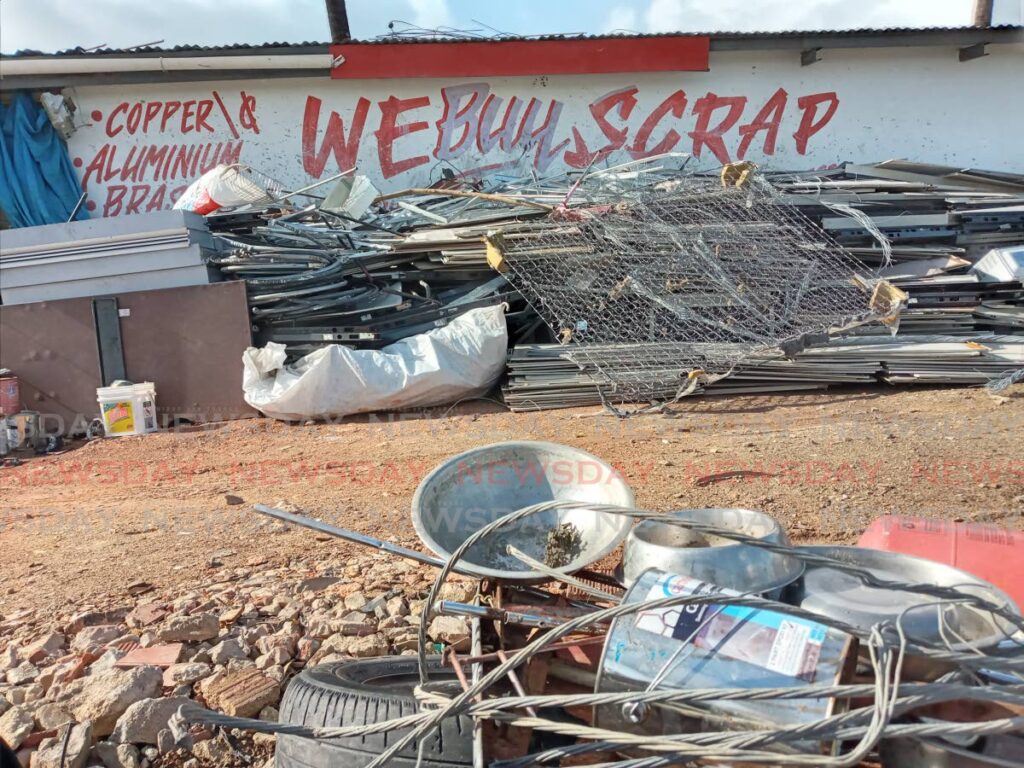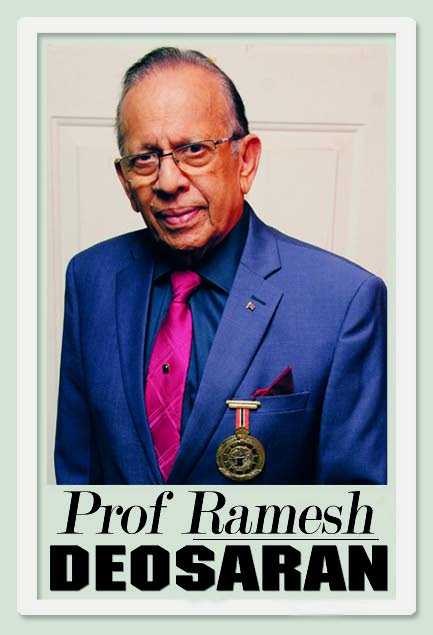Scrap-iron politics to crime

The noisy contestations between the “$260 million” scrap-iron trade and the government reveal once again the kind of society we are.
Ethnicity, fiery roadblocks, protest rallies, threatening crime and courthouse action all got inserted into what could otherwise be seen as a simple matter of investigation, regulation and law enforcement for an old problem.
It tells us about the criminogenic consequences of delayed government action. It also tells us about the sociology of crime, similar to what happens with quarrying, squatting, vending, PH taxis, etc.
Of course. cleaning the country of discarded “old iron, batteries, stoves,” etc, is an environmental good. Regional corporations used to do this and sell it too.
This working-class trade has become an industry with high-class buyers, with its own Scrap Iron Dealers Association and media-savvy president, Allan Ferguson and vice president Erros Seejattan.
So what is the problem?
A front-line problem is cutting down electrical and cable wires, stealing manhole covers, private property, etc, for export.
Government imposed a six-month ban on exports, promising a three-month review. Defining “scrap iron” and the government’s “regrettable” action, AG Reginald Armour admitted that the “stealing was crippling the country.” with the back-up National Security Minster calling it “a national security issue.” He added that since 2020 there had been 218 arrests for metal theft.
The UNC's Dr Roodal Moonilal said the ban would only add to “increased unemployment and possibly a hike in the crime rate.” Shadow labour minister Rudranath Indarsingh accused government of “killing jobs and industries.” Working-class advocate David Abdulah said “government action came too late, putting a heavy strain on affected families.” Letter-writer Linda Capildeo disagreed with the ban but warned, “If they are going after WASA and T&TEC installations, then it would not be too long before they go after radio towers.”
Meanwhile, the headlines screamed: “Brace for more crime. Warning of a crime surge.” And this with murders going over 350.
Mr Ferguson declared: “We do not support any illegal trade. Most of the people involved are underprivileged, with most of them ex-prisoners who were trying to avoid a life of crime.” He suggested police license every scrapyard. Claxton Bay alone has over 100 scrapyards.
Quoting international trade and scrap-metal prices, the articulate Ferguson said, “But it is how some people believe it’s how I look or how I speak, they don’t take me on. Maybe I have to change the colour of my skin.
“The people from Point Fortin, from Laventille, what will these people do? Ferguson tactfully asked.
On the black-market aspect, he said: “The market is there for people to continue stealing because there are yards that are buying it. So when they buy they are encouraging people to go and pull down more copper wire.”

Jameel Sadeek of the waste management company BK Holdings Ltd agreed with the ban, also pointing out the shady side of the trade.
Last Monday, the vocal Ferguson threw in another ethnic firecracker: “No respect. You know why? It’s because of how I look or how I speak. If it was Chinese or Syrian, they would have responded to them in a better way.”
An intriguing mixture of ethnicity, crime and law.
This lingering ethnic grievance was echoed by Beetham Gardens Landfill group spokesman Jason Thomas. Sitting next to Ferguson, Thomas said that he and his friends “depend on iron and scrap metal to make a living and it’s keeping them off the streets… you would just have crime and more crime.”
Look, it’s better you threaten them with votes than with crime.
So far, there is a difference between “shutting down” the trade and a temporary ban on exports, especially on stolen copper, to help facilitate a regulatory framework.
There is a dilemma here for the law and Ferguson too. Does the scrap-iron trade face fluctuating supply with job implications? Is scrap iron the only future for many black youths?
Columnist Prof Theodore Lewis ominously noted: “Able-bodied black men are reduced to inane CEPEP work. Black children failing and being sent to Golden Grove …What are the commonplaces here? Poverty, crime, failing schools, unsafe living environments, shanties within sight of Parliament…This is not just Laventille; it is Toco, Sangre Grande, Tobago, Point Fortin, La Brea, Marabella, Gasparillo.”
As Hinds admitted, “This is a dangerous place.”

Comments
"Scrap-iron politics to crime"